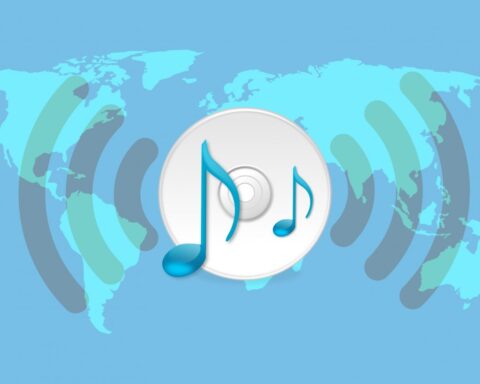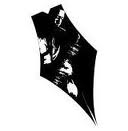![]() The 2010 JJA Jazz Awards had the greatest outreach this year than ever before, due to our social media campaigns, streaming video (now archived at www.ustream.com but viewable also on JJAJazzAwards.org), photo pool, slideshows and satellite parties. This taught us something about what we as an organization and individual journalists, too, need to do going forward.
The 2010 JJA Jazz Awards had the greatest outreach this year than ever before, due to our social media campaigns, streaming video (now archived at www.ustream.com but viewable also on JJAJazzAwards.org), photo pool, slideshows and satellite parties. This taught us something about what we as an organization and individual journalists, too, need to do going forward.
One simple thing is using Twitter, re-energizing the #jazzlives campaign we started last year. We can urge others and ourselves use those 10 characters (“jazzlives” along with the number sign, or hashtag “#”) along with 130 more stating who just played live and where they did it to prove that there’s a large, active jazz audience whose simple messages are amplified by the echo chamber of making them public. This is a free way of promoting and/or commenting on a musician, a band, a venue and your own concise wit (you can also use Twitter and Facebook and other social media sites to let potential readers know when you’ve committed an act of jazz journalism, and where they can read/see/hear it).
The 2010 Jazz Awards, using #jjajazzawards as a hashtag, received tweets from followers in far-away places — Lagos, Turkey, Uruguay, Argentina, Brazil, Columbia, Panama, Macedonia, Serbia, Philippines, Belarus, Japan, Johannesburg and Soweto, Czech Republic, all over Western Europe, the UK and North America. See the amazing distribution here. We have established that the Awards are of widespread (if thin) interest — at least once a year. Now we need to follow up. What can the JJA and its members do to keep these followers involved and to gain more of them, in the interest of spreading news about jazz, once our gala is past?
I don’t ask this rhetorically — the board of directors of the JJA are looking for suggestions. And we need suggestions that the suggesters — you — are willing to act on. Think globally or locally about it. Come up with ways to reach everybody in the world, or ideas about working with nearby organizations and informal groups interested in jazz. It seems clear enough that for the immediate future jazz journalists can and should use social media, blogs, video, audio, photos to reach people through the media they prefer.
Print publications are still estimable, but let’s face it: they’re not hiring in droves. The number of general interest newspapers with dedicated jazz coverage has dwindled. Monthly magazines can’t provide breaking news coverage (or review a concert as soon as it’s over, though that can be easily done online). Traditional radio seems to have the best potential for transitioning to success online, as time-shifting becomes available and podcasts proliferate. That’s a snapshot of our changing journalistic environment, and to keep jazz journalism alive we must acknowledge then keep up with it.
It’s not so hard, really, but it may require JJA members to engage in some retraining. Our skills as jazz experts are not in doubt, but our abilities to harness the possibilities of new media can benefit from learning about what’s out there. Here’s where the JJA can step in, offering webinars (web-based seminars) on basic uses of new media. We’ve done a bit of this, but not yet enough.
We have applied for a grant under the Mid-Atlantic Arts Foundation’s jazzNext program. We hope for funds to acquire easy-to-use video cameras for distribution to members, who will agree to participate in training sessions (jazzvideoguy Bret Primack has agreed to be a key workshop leader) and produce jazz news video clips for online posting. Yes, we applied for this grant last year, came gratifyingly close to being funded, and were encouraged to try again. Fingers crossed . . .
We are looking forward to the possibility of a second conference on jazz journalism in NYC next January, and are preparing grant applications to support such an undertaking, but we’re also considering whether we’d all be better served by trying to have the meetings, workshops, experiments online rather than dealing with the costs of face-to-face meeting. We’d all love to see each other; no doubt about it — in person is still best. But consider the air-fare, the cost of lodging, food, meeting rooms. . . maybe we’ve just got to do this on our computers. Figuring out the best way to group online will be an education in itself.
At this point, plans are wide open, and members are encouraged to chime in with ideas. What do you need to be a jazz journalist now? What can the JJA give you to help? What do you want to do, that you don’t know how to do? A survey of how members work now, what equipment we use and what vehicles for information dissemination we employ is probably in order. We have a new website coming — long promised, with new members’ directory and other useful capabilities — which we hope will position us well to move ahead.
The JJA needs your thoughts, energies and probably commitments of time to help keep jazz journalism a viable profession, and to spread jazz through media. You care, of course you do or you wouldn’t be reading this report. Ok, it’s summertime, a season for relaxation and regrouping. But since when do jazz journalists rest?
We’re going to festivals and open-air concerts as well as the usual gigs in clubs and larger venues. Think about how to get to all those other people in the audience, and the people who wanted to attend but didn’t, for one reason or another, as well as those folks who might be interested if they understood how rewarding jazz is. There must be ways to reach them. We did better in 2010 than ever before in putting the Jazz Awards in place. Now how do we proceed in the 24/7, 365-day effort to generate and disseminate info that makes sense, has meaning, activates audiences? Your responses are welcome — please be in touch (my email now: President@JazzJournalists.org). Let’s keep the momentum and good will produced by the 2010 JJA Jazz Awards focused towards the goals we all share. — Howard Mandel




